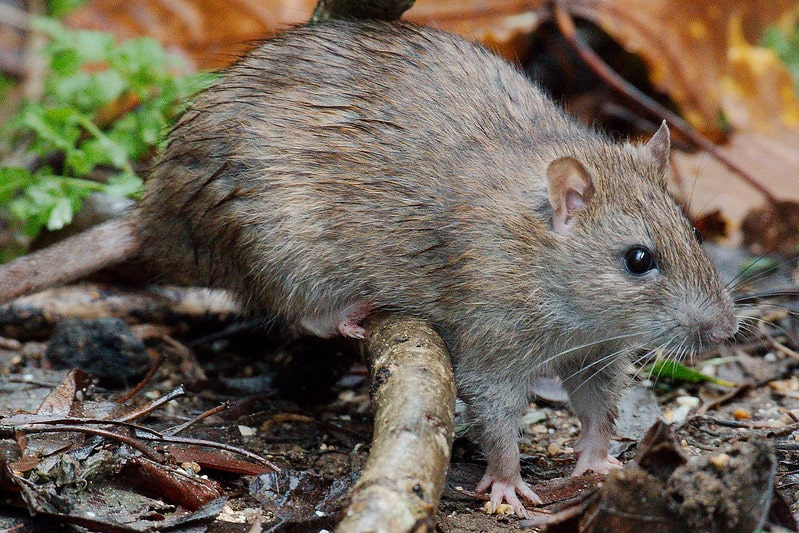
Your garden is the front where many animals and pest species, metaphorically speaking, fight for a better place to live, breed and find food supplies. This is the place where you can intersect them and prevent them from approaching, attacking and entering your home. Most often, you are forced to fight off and get rid of rodents like mice and rats.
We all know how creative and stubborn they can be. Once they’ve infested your home, you are better off calling a pest controller who can eradicate the problem and save you the headaches and sleepless nights.
However, if you live in a home with a garden, you know that this area is the weak point of entry into your property for rats and mice. That’s why it is a good idea to try to reinforce the place against the rodents who can ruin it. There are a few ways to do it by using organic methods and taking advantage of the natural resources in your garden.
Here is your strategic plan on how to prepare and win the battle of rodents vs humans.
Table of Contents
How to Get Rid of Rats in the Garden Naturally
For quite some time, people have determined that some plants successfully deter rodents. Pay attention that this method is only effective during the spring and summer months when you can cultivate plants. During the winter months, you will need to keep the garden clean, your garbage under lock and constantly check your shed if you have one. Don’t give time to these creatures to burrow and infest your place.
Plants That Can Deter Rats From Your Garden
Mint
Rats very much dislike the smell of mint. Growing beds with mint at different places around the garden is a good way to cut off some access points for the rodents. The other benefit of growing mint is using it fresh in your food and beverages.
Garlic
Again, the smell is repulsive to the creatures. Once they come in close distance with it, they will think twice before getting close to it. You can experiment with garlic water and squirt it down a rat burrow. The smell will make it uncomfortable for the rats to live there, and they will leave the place for a more comfortable one. The other perk for you is growing fresh garlic and cooking some tasty meals.
Lavender
Rats rely on their sense of smell to find food and avoid dangerous situations like coming in close proximity to predators or with something repulsive to their senses. Imagine that one of the most preferable smells for humans – the one of lavender, can have quite the opposite effect for the rats.
Because of its potent smell, it can deflect them from finding food. So they try to avoid plants like this one. It may be helpful to plant it around areas where rats may be attracted, around decks, garden structures and around the perimeter of the yard.
Herbs
Creating a border of herbs like basil, thyme and echinacea around the outside of your garden is a great control method. Once the rats smell them, they will consider that your place has nothing to offer and they better run to the neighbour who probably doesn’t have a “repulsive” border around the garden.
It’s a kind of win-win situation. You will keep the rodents away, as well as the mosquitoes in the summer, and have some fresh herbs and a pleasant scent in the garden.
Onion
On the one hand, you can go for growing onions in your garden or just place onions at the most common points of entry for the rats. After taking one smell at it, they will run. Just make sure to put a new onion every few days otherwise, it will rot. And instead of repelling the rodents, it will become their food.
However, onions can be dangerous if you have pets. It is especially poisonous for dogs. Growing beds with onion, garlic and leeks is a pretty effective way of creating a natural border for keeping not only rodents but several other pests at bay as well.
The Role of Predators in Natural Rat Control
Nature has a way of maintaining balance, so predators are quite helpful in managing rat numbers. Keeping rats under control in your yard will depend on inviting natural predators including owls, hawks, and even cats. Particularly good rat hunters are owls, and just one family of barn owls will eat hundreds of rodents during a season.
By putting owl nesting boxes in your garden, you can draw in these predators and organically manage the rat population without using poison.
Securing Food Sources and Removing Temptations
Removing the initial source of attraction for rats is a highly straightforward and efficient approach to managing their problem. Because they are attracted to food, if you’re not careful, gardens can become a rat buffet. Rats enjoy searching through compost for leftovers, so keeping your bin closed will help prevent them from doing so.
It’s crucial to frequently pick up any fruit or vegetables that have dropped to the ground if you grow your own. Anything that is left lying about will be gladly devoured by rats. Additionally, keep all garden supplies, pet food, and bird seed in properly sealed containers. This lessens the likelihood that rats will discover a reliable food supply.
Rats are also drawn to bird feeders. Although birds are wonderful visitors to the garden, be sure to clean up any seeds that have scattered around feeders because rats will eat everything they can get their hands on. Rats won’t find your garden as enticing if you keep the area neat.
Maintaining Cleanliness to Deter Rats
A chaotic garden is a rodent’s dream come true. These pests find the perfect hiding places in overgrown foliage, piles of waste, or wood stacks. Rats will be repelled if you take the time to periodically clean up your garden. To begin, remove any bushes or plants that might be growing dense cover, which could serve as a breeding ground for rats. The locations where rats feel secure enough to establish a nest can be eliminated by removing leaf piles, fallen branches, and other superfluous debris.
Consider also securing any outdoor sheds or greenhouses. Rats can squeeze through surprisingly small gaps, so checking for and sealing up any potential entry points can prevent them from using these structures as shelters.
Are you dealing with a pest infestation?
You don't have to be alone in the battle against pests. Hire a professional pest expert!
Call usHow to Get Rid of Burrowing Rats in the Garden Naturally
Rats are one very clever species. They are very good at concealing their presence until it’s too late. They catch all activity around them and are experts in hiding, waiting for you to go to bed at night so they can come out of their burrows and wreak havoc on your property.
Rats usually get in your garden because it is a constant source of food and a great place for hiding. Once they settle there, you need to exercise some serious rat control methods or seek the services of professionals to get rid of the rodents. Believe it, it’s a difficult and not very pleasant task. What’s crucial is to direct your attention to catching the rats rather than trying to deter them.
Rats love close, dark spaces. They can find and create a home even underground, which comes with all sorts of problems for you. The rodents prefer ground that has been cultivated because it’s easier to dig into it.
These creatures love their anonymity which means they will conceal really well the entrance to any burrow. So when inspecting your garden, look for holes about 8 cm in diameter. You may find a small heap of excavated soil and possibly regular path tracks next to the hole.
Usually, rats burrow down 45 cm to 60 cm, but they are capable of digging even deeper. The length of the burrow may reach no further than a meter. However, bear in mind that they are capable of digging their way down underneath the foundations of a house to gain access inside.
Repelling Rats From the Burrow
Before filling the burrow, you need to drive the rat out. Here are some methods to get rid of intruders:
- Mothballs: the smell emitted by this chemical compound is potent and will chase away the rodent, giving you a chance to close the hole.
- Ammonia: it is very similar to the pungent smell of urine. It will confuse the rats and make them think there are foxes nearby that scream danger all around. The strong odour will keep the rats away for a long because they don’t like the idea of becoming prey to foxes.
- Peppermint: rats just can’t stand this aroma. What you can do is dip cotton in peppermint and place it in the burrow. You will need to change the cotton every 3-4 days, but you won’t way too long before the rats scurry away from the smelly hole.
- Bay leaves: they are deadly to rats. They think it’s food and eat it. However, it’s poisonous for them, and they will die.
How to Fill a Rat Burrow
First, make sure if the burrow is occupied or not. During the day, when rats are usually hidden inside, you can block the hole entrance. If there are occupants during the night, they will dig their way out past the obstruction. Come in the morning, and you will find out for sure if something is living there. If the obstruction you’ve created hasn’t been meddled with for a couple of days, then safely assume that the burrow is uninhabited. The best thing would be to fill it.
Otherwise, sooner or later, a snooping rat will come across it and would gladly take residence in a perfect ready-made home.
What you need to do is to fill the entrance to make a permanent seal. Use soil, mix it with a few stones and push it into the hole. Make sure to ram it in tight to make it difficult for other rodents to dig into it. Apply some strong disinfectant around the burrow to eradicate any remaining smells of rats which may attract new visitors.
In case you want to protect a new garden or if you are not growing any plants, you can lay a piece of netting just under the soil. It will prevent rats from burrowing or eating roots and bulbs. However, pay close attention because there are some persistent rats that will chew through the netting.
Are you dealing with a pest infestation?
You don't have to be alone in the battle against pests. Hire a professional pest expert!
Call usConclusion
Keeping rats away from your garden using natural and humane methods may take time and consistent effort. However, it is very important to follow the basic rules. Once you have established rat infestation, you need to call rat pest control specialists or consult how best to tackle the problem.
You need to get rid of the rodents completely. Only after your property is cleared of all traces of infestation you can think about how to prevent rats from coming into your garden and home again. One way of doing this is by trying the methods listed in this blog post.
Do not forget that it is essential to make your garden unattractive for the rats. Grow the plants they stay away from, keep the area clean and seal all burrow holes for lasting rat control.

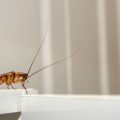



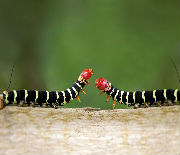
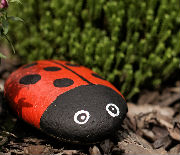
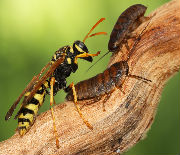
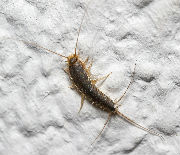
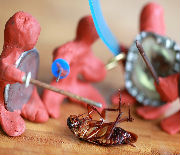
I found what was like a rat hole in my lawn. I put water in it and it kept going down never filled up. this went for about 10 minutes. What other hole could this be because if rat holes only go down 3 feet this wasn’t a rat hole. thanks.
Steve
We did tha same thing and realised the rats were coming from an underground drain. Hence, it never filled with water.
Rats and mice are very dangerous as they can spread plague and other diseases. The best option is to keep your place clean. Keep waste foods in the closed bins. If still the rodent infestation persists then it is best to user pest control services.